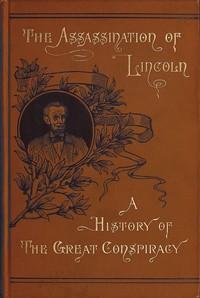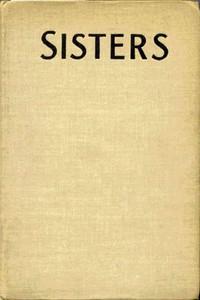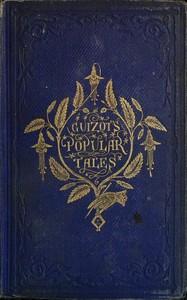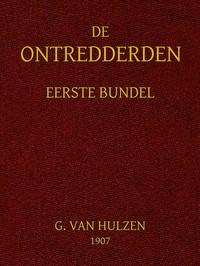|
|
Read this ebook for free! No credit card needed, absolutely nothing to pay.Words: 131797 in 20 pages
This is an ebook sharing website. You can read the uploaded ebooks for free here. No credit cards needed, nothing to pay. If you want to own a digital copy of the ebook, or want to read offline with your favorite ebook-reader, then you can choose to buy and download the ebook.

: Assassination of Lincoln: a History of the Great Conspiracy Trial of the Conspirators by a Military Commission and a Review of the Trial of John H. Surratt by Harris T M Thomas Mealey - Lincoln Abraham 1809-1865 Assassination; Surratt John H. (John Harris@FreeBooksWed 07 Jun, 2023 e should be known to them as a man holding the same opinions and actuated by the same purposes as themselves. To gain fully their confidence was necessary to the success and usefulness of his mission. This he could only do by making them believe that his sentiments and purposes were in unison with their own. Of course this involved duplicity and falsehood, yet it is held to be allowable in war, because it may be made to contribute to success. A great deal of the strategy in war consists in deceiving the enemy; and if it is ever allowable by falsehood to deceive, it was certainly allowable by falsehood to deceive those who were playing false to their government to accomplish its overthrow. They were secretly concocting their schemes for the accomplishment of this purpose; and to be forearmed against them, it was necessary to be forewarned of them. This could only be done by this kind of deception, which is the same in its nature as that practiced by every spy. But spies are used by both parties to the conflict in every war. War is in its very nature atrociously wicked; and so, its ethics cannot be made to conform to the accepted morality that ought to govern peaceful life. But whilst war is wicked and ought never to be provoked, it is yet justifiable when it becomes necessary to the preservation of the life of a nation. Upon the aggressor in this case the responsibility belongs. On him the guilt falls. A defensive war is always justifiable; and so, according to the code of military ethics, everything that is necessary to its successful prosecution is also justifiable. This secret service department has always been considered one of these indispensable necessities; and it has never been regarded as a just ground of impeachment of a man's character for truthfulness and honesty that he has been found engaged in this kind of service. Indeed the very nature of the duties of this service call for a man of sterling integrity, in order that the information obtained through him may have the quality of reliability. That Richard Montgomery succeeded fully in gaining the confidence of these Canada rebels is shown by the fact that they made him a medium of communication between themselves and the Richmond government. His character is further shown by the fact that when they paid him one hundred and fifty dollars for carrying despatches to Richmond he credited the government with it on his expense account. And that he acted faithfully in the discharge of his duties to his government is shown by the fact that he always submitted the despatches sent by him to the authorities at Washington, where copies of them were kept when they were allowed to pass. This is sufficient evidence that he was in a position to learn the facts to which he testified, and also presumptive evidence of the credibility of his statements. The force of his evidence could only have been broken by undoubted proof that he was a man that could not be believed under oath. Dr. James B. Merritt was a native of Canada by accident, having been born there whilst his parents were there on a visit, but had been all his life a citizen of the State of New York. He went to Canada in the spring of 1864, and practiced his profession at Windsor and Dumfries. He passed amongst the rebels in Canada as a sympathizer of the Southern cause, and was accepted by them as a good rebel, and was fully taken into their confidences. They talked freely to him, and revealed their plans to him without hesitation or reserve. His testimony, as we have seen, is very specific, and relates to facts of the greatest importance. He testified that his sympathies had always been with his government, and that his object in dissembling in his intercourse with the Canada rebels was to be able to impart information to the United States government when he deemed it of sufficient importance to justify or require its communication. That he did thus voluntarily, and without compensation, furnish valuable information to the government was shown. He had thus communicated to the Provost Marshal at Detroit the plot to burn New York City. It was also shown that he had made an effort to communicate the knowledge he had obtained, after the meeting of the 6th of April, at which John H. Surratt delivered to Thompson the despatches he had brought from Richmond, as to the parties starting from Canada to Washington to assist in the work of assassination. There was sufficient evidence of his loyalty and usefulness to the government, and his credibility was not assailed. He was a self-constituted secret service man, working without compensation, and so entitled to all the more honor. Of course they were like demons in their rage when they saw that he had revealed all of their doings. He was at once virtually made a prisoner by twelve or fifteen men armed to the teeth, who confronted him with his testimony before the Commission. Conover found himself suddenly and unexpectedly placed in a situation of great difficulty and danger, escape being impossible, and so he denied that he had been before the Commission as a witness. They then required him to make a denial under oath, and set a lawyer at work to put this disavowal in the most imposing shape, whilst they sent for an officer to administer the oath, informing Conover that he must appear to the officer not only to be willing, but anxious to swear to this disclaimer, in which they make him say he had been personated before the Commission by some infamous scoundrel, who had sworn to a tissue of falsehoods, and telling him that if he manifested the least hesitation or unwillingness his life would pay the forfeit. He at first, in order to get away from them, proposed that he would go to the hotel and prepare the paper that they required. O'Donnell told him that would not do, and that he would shoot him down like a dog if he did not do as they required. Conover still declining, Sanders said to him, "Wallace, you see what kind of hands you are in; I hope you will not be so foolish as to refuse." Seeing there was no other way of escape from them, Conover finally did what they required. They then had a lawyer, by the name of Kerr, to write out and sign and be qualified to a very formal affidavit covering the whole case, to the effect that he was present and saw Conover swear to the disavowal referred to, and that he did it willingly, and appeared anxious to do so, in justice to his own character. These affidavits they at once published to the world through the Canada papers, and with them also published the following advertisement, as if from Conover:-- Five hundred dollars reward will be given for the arrest, so that I can bring to punishment, in Canada, of the infamous and perjured scoundrel who recently personated me under the name of Sanford Conover, and deposed to a tissue of falsehoods before the Military Commission at Washington. JAMES W. WALLACE. They also wrote and published over his name, as if from him, the following letter:-- MONTREAL, June 8th, 1865. JAMES W. WALLACE. Conover not returning to Washington at the time he was expected, it was realized that he had been put in jeopardy by the premature publication of his testimony, and so it became the duty of the United States to follow him with its protecting arm, and he was rescued through the intervention of General Dix. Being thus rescued, he came again before the Commission and testified circumstantially to all of the above facts, and thus exposed the effort of the conspirators to break the force of his testimony by an affidavit extorted by violence whilst he was virtually a prisoner, and supported by that of Kerr, who may not have known that he testified to a falsehood, as the coercion was used before he was sent for, and still held over the head of Conover by the threat that if he manifested the least hesitation or unwillingness before Kerr his life would pay the forfeit. The testimony of Conover as to the circumstances under which this affidavit was extorted from him, was substantiated, as also his character, by Nathan Auser, who testified as follows:-- Free books android app tbrJar TBR JAR Read Free books online gutenberg More posts by @FreeBooks
: Sisters by North Grace May - Family Juvenile fiction; Mystery and detective stories; Sisters Juvenile fiction; Identity (Philosophical concept) Juvenile fiction; Mistaken identity Juvenile fiction@FreeBooksWed 07 Jun, 2023

: Popular Tales by Guizot Madame Elisabeth Charlotte Pauline Burke L Mrs Translator - Conduct of life Juvenile fiction; Children's stories; Children Conduct of life Juvenile fiction@FreeBooksWed 07 Jun, 2023
|
Terms of Use Stock Market News! © gutenberg.org.in2025 All Rights reserved.






